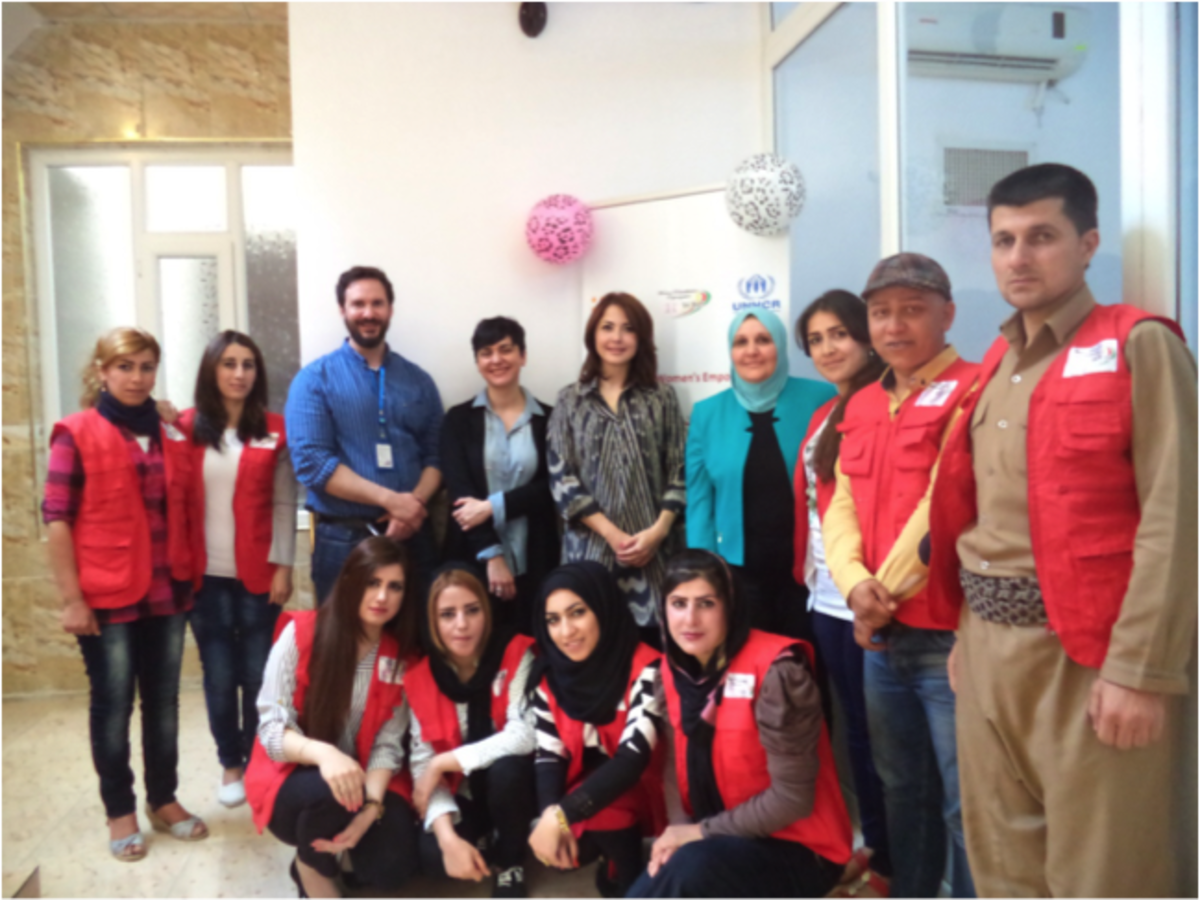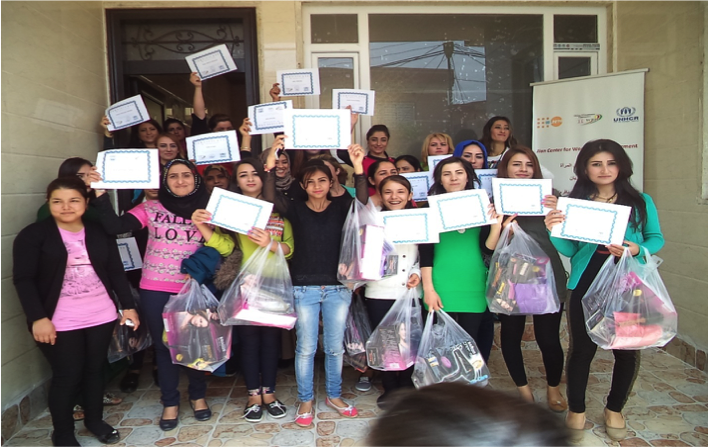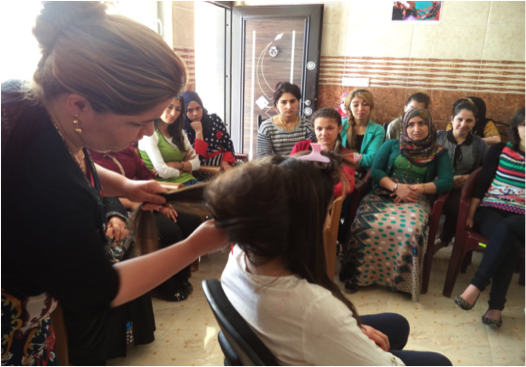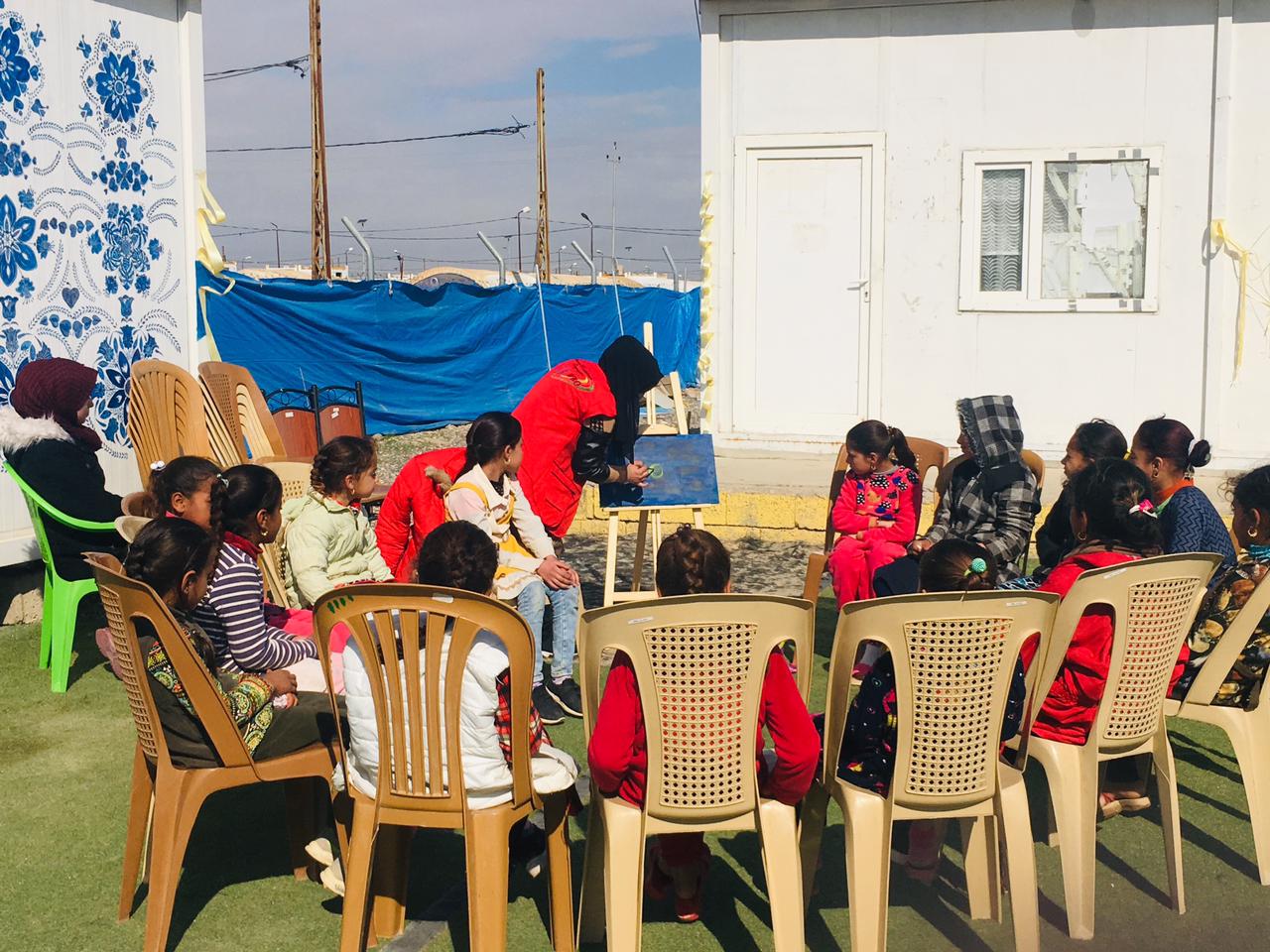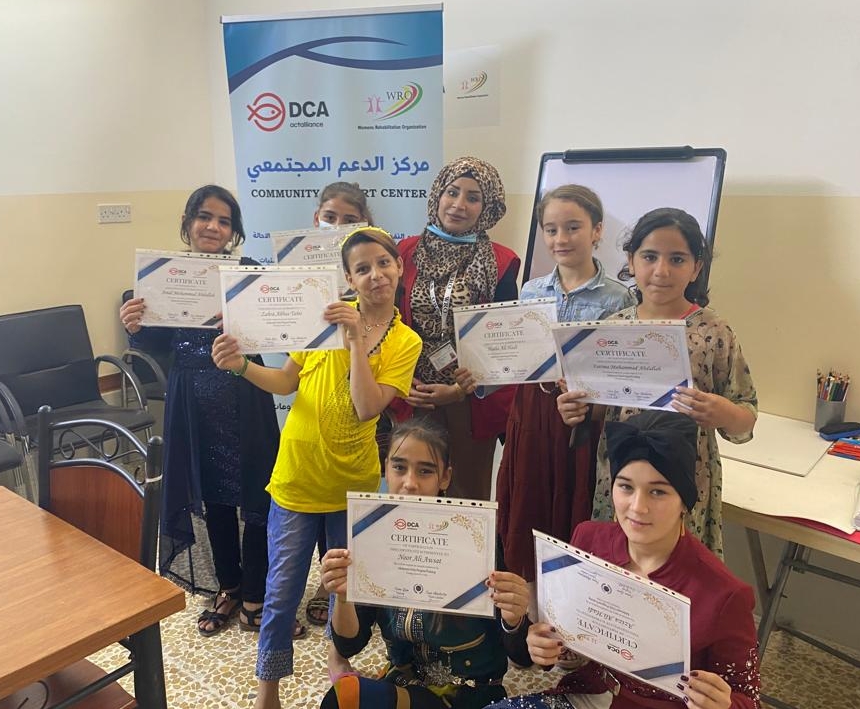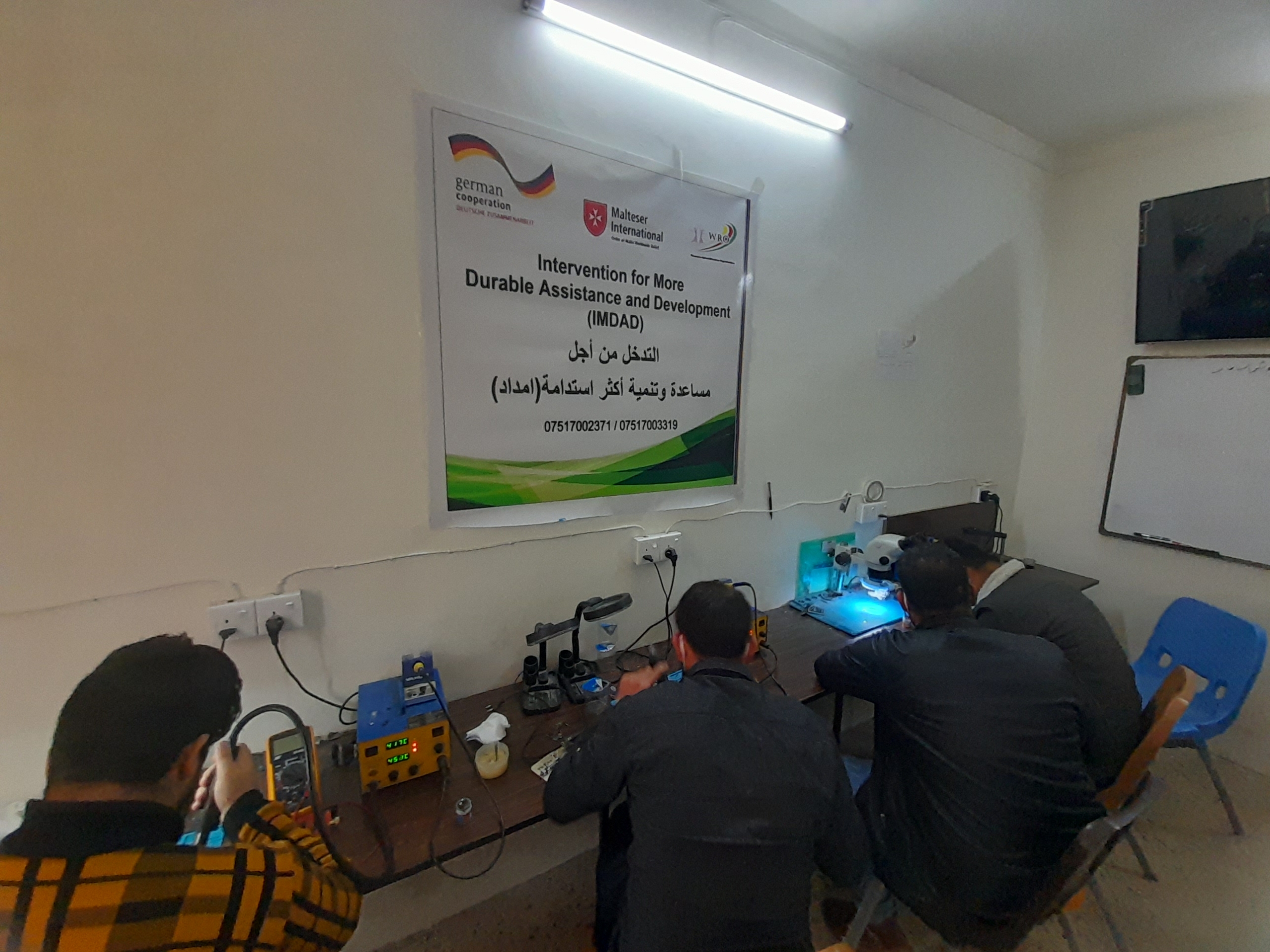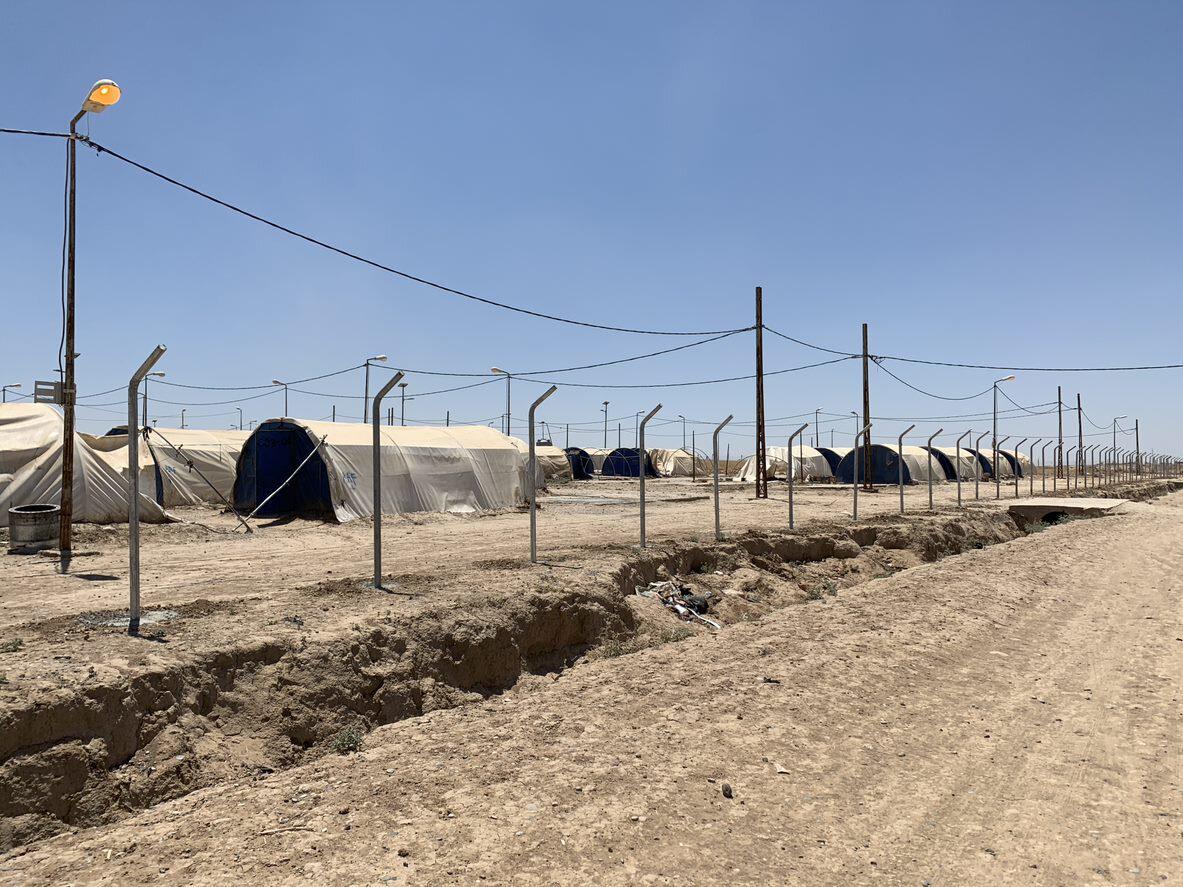Project Description
Funded by: UNHCR
Timeline: January 2016 – December 2016
This project seeks to reduce the risk of SGBV, while the impact will be measured by the extent persons of concern have information about SGBV risks, prevention and response within their communities including access to specialized services for persons at risk of SGBV Conflict and SGBV-affected and at risk Syrian refugee women and girls in Bahakre district in Erbil governorate will be targeted during the eleven month project duration. Women’s Rehabilitation Organization (WRO) will expand on its existing women’s safe space which will offer SGBV prevention and response support services including SGBV case management, vocational training, legal referrals, and SGBV awareness reaching 870 vulnerable Syrian refugees, with a particular emphasis on refugee SGBV survivors and those who are at risk of exploitation or abuse, as well as awareness raising campaigns covering at least 1500 refugee community members. The centre will also refer beneficiaries to other community and NGO services. The project will work in cooperation with 45 community members trained through the project to conduct safety audits and raise awareness on SGBV prevention and response through conducting joint awareness-raising campaign. The project activities aimed at raising awareness will be also coordinated with the community outreach volunteers supported by UNHCR.
Sample Project Outcomes/Achievements:
- 694 refugee families (668 women, 24 girls) were reached by the mobile team, who introduced WRO services available at the centre. This was done through verbal and flyer information dissemination, whilst conducting a needs assessment. The mobile team met daily with the coordinator, case manager, and social workers to discuss each visit and those needed further support were linked.
- In the duration of the project, 176 female refugee beneficiaries (350 women and 35 girls) were trained and successfully completed vocational skills training. Each participant received a final certificate as well as a tool kit in order to be able to practice and possibly start a small business up in their private lives. Center staff conducted 3 month post-course completion surveys with participants. The results identified the VTC component as not only a significantly rewarding safe recreational activity to enhance community cohesion but also a practical solution for barriers to economic empowerment. Moreover, according to a post-activity assessment conducted in 2016, the majority of the participants are using the toolkit at home for their family, relatives and for the community, and starting a small income generating activity, 2 women have currently opened formal shops in Bahakre.
- During the project WRO staff referred 140 refugee beneficiaries (77 women, 3 girls & 60 men) to our legal partner Quandil in order to support them with legal assistance.
- 355 individuals (235 women, 19 girls, 91 men & 20 boys) benefitted from Case Management and Psychosocial Support Services, provided by WRO trained Case Manager and Social Worker. Cases ranged from physical and psychological issues such as SGBV, GBV including, harassment, denial of resources, emotional and physical abuse, domestic stresses, spousal abuse, early/forces marriage, and mild to significant depression and anxiety due to stress due to prolonged displacement or to the extreme lack of basic needs, food and livelihoods and employment.
- 472 beneficiaries (420 women, 52 girl) participated in SGBV/GBV awareness sessions conducted by the Center’s Case Manager and Social Worker which focused on GBV topics such as early and forced marriage, harassment, domestic violence, sexual assault and their physical and psychological effects, and the legal rights of women and girls and pathways to justice.
- By the end of the project a total number of 45 community members (22 women, 7 girls, 14 men, & 2 boys) were trained on basic standards for community-based protection, GBV core concepts, SGBV prevention and response, referral pathways, safety Audits.
- 9 safety audits were conducted in Bahakre District during the duration of the project implementation. The Safety Audit Teams were composed of the WRO Center Coordinator, Social Worker and volunteer community members who attended the Trainings.
- During the final month of the project, the SGBV awareness campaign was implemented. The themes of denial of resources reflected a large portion of GBV incidents reported, feedback from the community, and gaps in current GBV prevention awareness response as this was the first of its kind in the KRI. The center team disseminated 1500 brochures and shared key messages throughout Bahakre district.



